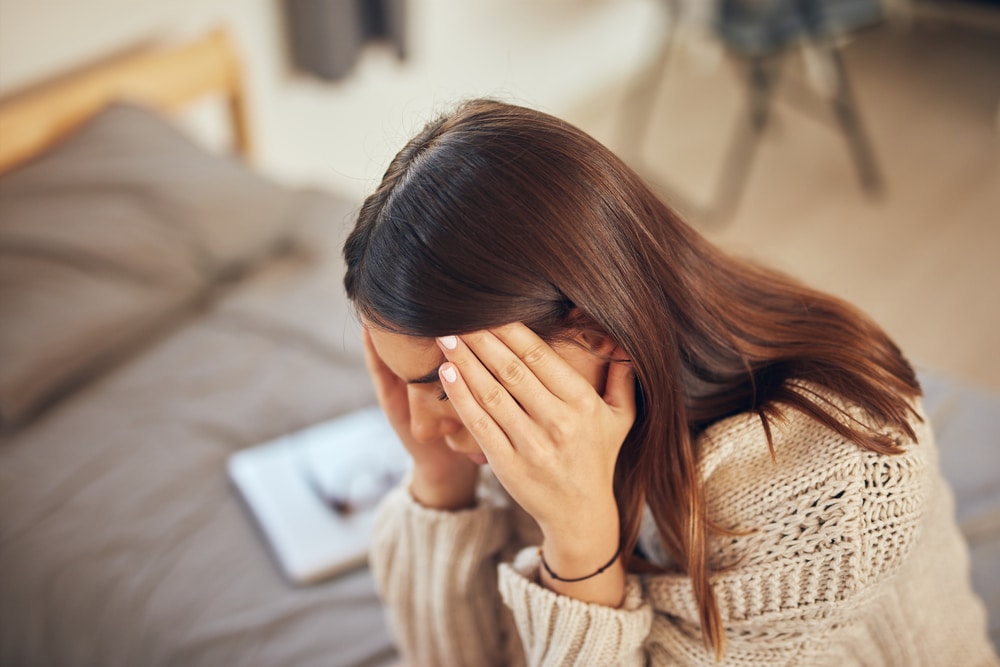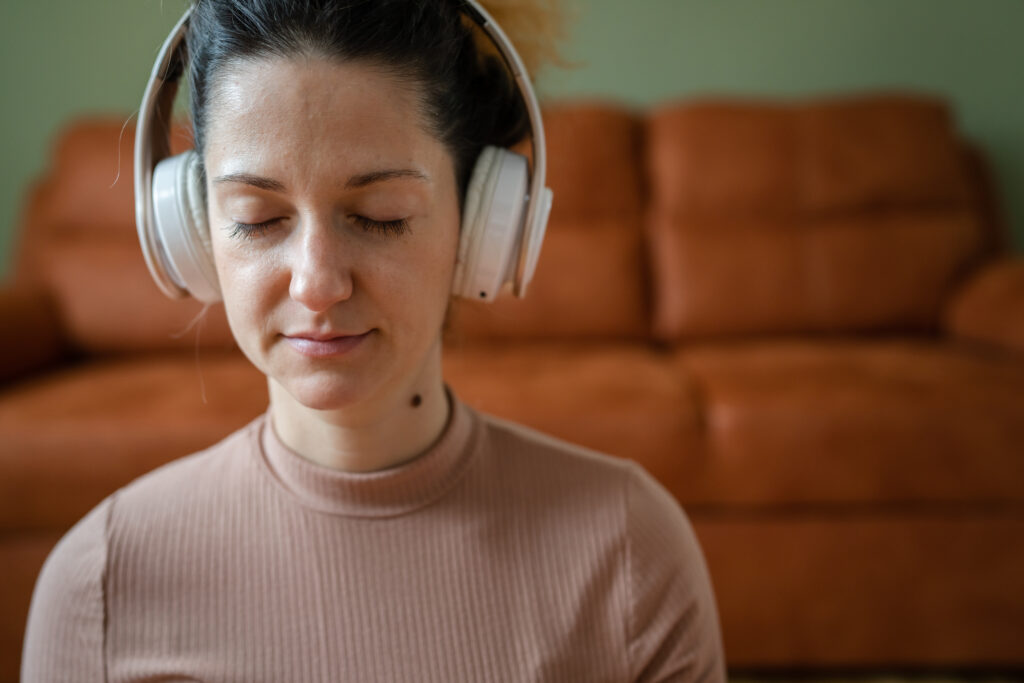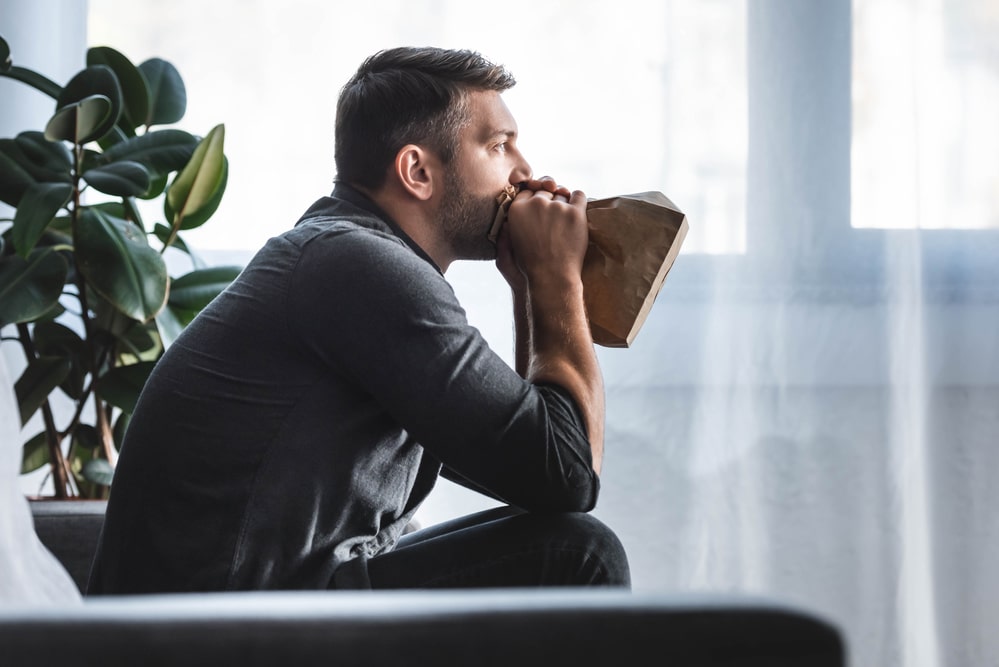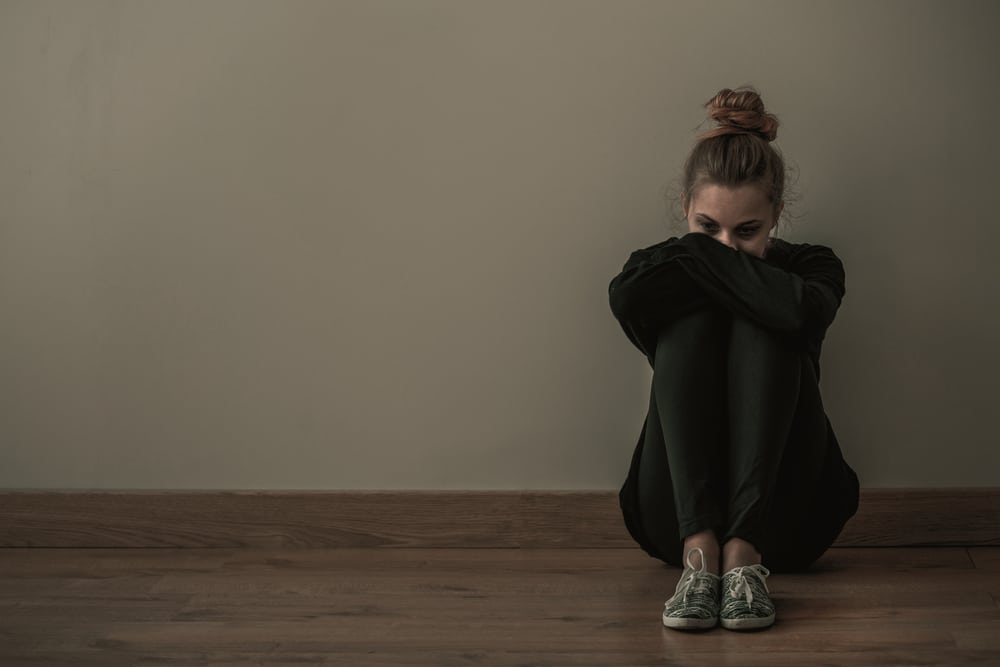Anxiety disorders are the most common mental health concerns experienced in America today. While everyone experiences anxiety to some degree, an anxiety disorder occurs when someone experiences recurring symptoms of anxiety disorder (constant dread, fear, shortness of breath, social difficulty) regularly for at least six months. These symptoms of anxiety, if left unchecked, can interfere with work, relationships, sex life, or normal day-to-day behavior, worse it can lead to some serious mental health problems. Read on to find out the causes and relationship between anxiety and addiction.
One of the most common side effects of dealing with an anxiety disorder can be self-medication which leads to addiction. Unfortunately, according to the National Institute on Drug Abuse, people who struggle with anxiety disorder are two times as likely to also suffer from substance use disorder. This is known as dual diagnosis or co-occurring disorders.
While it may seem that self-medicating helps manage anxiety, these types of mental disorders commonly co-occur with addiction as more and more drugs and alcohol are needed to combat anxiety disorder. In fact, alcohol abuse and drug use generally worsen the symptoms of anxiety and can lead to a vicious spiral of dependency and addiction. Here at Behavioral Health Centers, we have mental health and addiction treatment specialists ready to help you diagnose and recover from your drug abuse problem and mental illness.
You can reach us here: 772-774-3872 to find out the anxiety and addiction treatment that is perfect for your needs.

Different Types of Anxiety Can Lead to Addiction
While it is common for everyone to experience certain symptoms of anxiety occasionally, when anxiety starts to interfere with daily life and functioning, it might be turning into a mental illness, that is, anxiety disorder, and it may be time to seek professional help.
Anxiety disorders are diagnosable, recurring moderate to extreme symptoms of stress, debilitation, fear, physical symptoms like body weakness, shortness of breath, and social difficulty.
There are other anxiety disorders that can be treated with unique approaches or medication. One or all of the following issues can lead to dependency on substance use to cope.
Dual diagnosis is a condition affecting millions of people all over the globe. However, it is a condition that is tough to spot, and therefore it can affect anybody unknowingly. Besides, the dual diagnosis being unpredictable, those surrounding the person can also fail to notice. However, there are signs and symptoms of dual diagnosis that might help you identify the condition, which includes:
Dual diagnosis is a condition affecting millions of people all over the globe. However, it is a condition that is tough to spot, and therefore it can affect anybody unknowingly. Besides, the dual diagnosis being unpredictable, those surrounding the person can also fail to notice. However, there are signs and symptoms of dual diagnosis that might help you identify the condition, which includes:
Signs and Symptoms of Anxiety Disorders
While the various anxiety disorders take different forms, they are often associated with generally similar anxiety symptoms including but not limited to:
Underlying Causes of Anxiety or Addiction
Anxiety disorder isn’t a weakness, nor fault. Anxiety disorders can often be attributed to various reasons. Individual cases are different. Rarely does there be just a single cause. While some may experience anxiety disorders or addictive behavior without any of the following prevailing factors, most patients with these difficulties exhibit one or more of the following:
Genetic Disposition
Often both anxiety disorder and substance abuse tendencies can be inherited from one or both parents, leaving some to suffer by no fault of their own.
Trauma
Often traumatic events can lead to the development of anxiety disorders or substance use disorders as a coping mechanism.
Excessive Drug/Alcohol Use
Occasionally, people can develop an anxiety disorder or other mental health disorders as a symptom of excessive drug or alcohol abuse.
Relationship or Workplace Stress
These are common contributors to the onset of anxiety disorders as well as being precursors to substance use disorder. Often, alcohol is used as a coping mechanism when the stressors of life seem to be too overwhelming.
The Relationship Between Anxiety and Addiction
People who suffer from anxiety disorders are significantly more likely to also struggle with substance abuse issues. In fact, anxiety disorders (and other mental illnesses such as depression) can feed substance abuse/addiction and vice versa. The diagnosable presence of both anxiety and addiction is known as a Dual Diagnosis or co-occurring disorders.
In the case of co-occurring conditions, it is important to pinpoint the origins of the individual issues as much as possible to learn if/when one issue is exacerbating the other. There are many reasons why an anxiety disorder may spur a substance abuse issue or vice versa:
Self-medicating symptoms
Often a person struggling with anxiety disorder may turn to alcohol or drug addiction to mask the feelings of dread or stress they are feeling. For example, a corporate businessman who deals with extreme “on the job” stress may feel the need to “drink to forget” upon returning from work. The opposite can also be true, wherein someone with a drug or alcohol problem begins to exhibit symptoms due to excessive substance use.
Physiological Factors
Both substance use disorders and anxiety disorders can potentially be related to biochemical imbalances in the brain. For example, serotonin imbalance, (a chemical found in the brain that regulates stress levels, mood, or anxiety) has been linked to both substance abuse and anxiety disorders.
Family History
Both addiction and anxiety disorders can often be inherited from one or both parents. Anxiety disorders can be more prevalent in a patient whose parents struggled with anxiety or substance abuse, and vice versa. Hence, family history is one of the things to look out for when diagnosing such mental health disorders.
Substance Abuse or Withdrawal
Alcohol or drug abuse will often lead to increased symptoms of anxiety disorder. In fact, anxiety disorder is often one of the first symptoms to materialize when someone begins treatment. Also, the symptoms of chemical withdrawal (sweating, increased heart rate, shortness of breath, etc) are often very similar to anxiety symptoms.
Approaching Someone Struggling with Anxiety and Substance Abuse
Often the first step to treating co-occurring disorders can be the love and concern of family members or friends. While it may seem daunting to approach someone dealing with these issues, the alternative of ignoring them can be significantly worse.
According to many experts, interventions for these types of disorders often have success rates somewhere between 70% and 90%. So watch out closely for severe anxiety symptoms if you think your loved one has it.
Results are also reported significantly better when the intervention is led by a trained professional, like the ones we have on staff at Behavioral Health Centers. It is important to approach someone suffering from anxiety disorders and substance abuse disorders with compassion, understanding, and practical solutions.
At Behavioral Health Centers, we are committed to providing mental health disorder and addiction treatment options that take the fear and difficulty out of moving towards anxiety disorder and substance abuse recovery or helping a loved one do the same.
Treatment Options for Dual Diagnosis of Anxiety and Addiction
According to the Anxiety and Depression Association of America, Anxiety disorder like Generalized Anxiety Disorder can be treated effectively with both therapy, medication, or a combination of both. Cognitive-Behavioral Therapy, or CBT for short, has been proven to be one of the most effective therapeutic methods for treating both anxiety and addiction.
Cognitive-Behavioral Therapy (CBT) involves the identification and redirection of harmful, negative, recurring thought patterns. CBT, which can be implemented in both individual or group environments, will help patients identify recovery goals and work towards completion and can be effective for both anxiety and addiction type disorders.
Anxiety disorders and drug abuse can often be caused by unresolved or repressed trauma. Post-Traumatic Stress Disorder can be found in individuals that have experienced this type of Trauma. CBT has proven to be one of, if not the most effective therapeutic method of treatment for mental disorders and PTSD.
However, According to the National Institute of Health, therapeutic modalities, combined with medication such as sertraline, can increase success significantly.
Often, medication in the SSRI (Serotonin Reuptake Inhibitor) category, (such as commonly prescribed Citalopram, Zoloft, or Paxil) is found to be effective in conjunction with Cognitive-Behavioral Therapy and other types.

Other Psychological Treatments To Consider
Psychosocial interventions are a type of psychological treatment that aims to help people manage anxiety disorders or substance abuse problems by improving their social and emotional well-being. These can be done through inpatient or outpatient treatment. There are different types of psychosocial interventions, but all share the goal of helping the person to develop skills or ways of thinking that can reduce anxiety and improve overall functioning
Mindfulness meditation is another form of treatment that one can use to treat anxiety disorders. It aims at suspending a conscious experience from a present moment experience which is excluded from judgment evaluation, or reaction. Mindfulness meditation has been studied in individuals in prison who have PTSD or SUD. Participation in mindfulness courses predicted lower consumption of alcohol or illicit substances at three months, regardless of how critical your anxiety disorders and substance use disorders are.
Another type of psychosocial intervention that can alleviate anxiety is exposure therapy. This is particularly effective for Generalized Anxiety Disorder. Exposure therapy involves gradually exposing the person to the things or situations that make them anxious, in a safe and controlled way. This can help the person to overcome their fear and eventually be free of anxiety disorders and substance abuse.
Experience the Behavioral Health Centers Difference Today!
People experiencing symptoms of both anxiety disorders and substance abuse require specialized anxiety and addiction treatment that speaks to both issues independently. At Behavioral Health Centers, we are prepared to help with all forms of anxiety disorder and no matter what level of addiction.
Our program offerings range from simple individual therapy to group options, to outpatient recovery and even inpatient, live-in options for more severe issues of anxiety disorder.
Our state-of-the-art facilities are designed to help make the transition to recovery as easy as possible. Our various locations include incredible amenities including luxurious pools, adventure trails, comfortable rooms, and spacious facilities that highly improve mental health.
At Behavioral Health Centers, we have both counselors and Board Certified Psychiatrists on hand to help find the proper combination of anxiety and addiction treatment for you. Contact us today to discuss your options!






